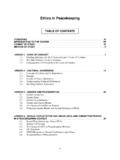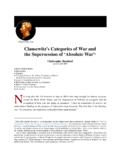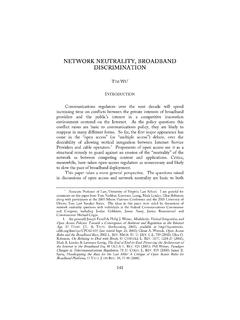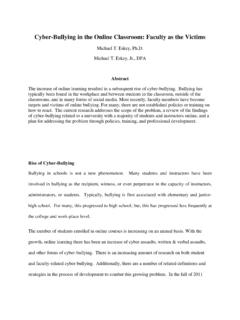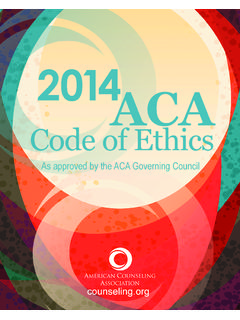Transcription of CONSTITUTIONAL COURT OF SOUTH AFRICA Case CCT …
1 CONSTITUTIONAL COURT OF SOUTH AFRICA Case CCT 44/00 THE STATE versus RUSSELL MAMABOLO Appellant Intervening BUSINESS DAY freedom OF EXPRESSION INSTITUTE Amici Curiae Heard on : 27 February 2001 Decided on : 11 April 2001 JUDGMENT KRIEGLER J: Introduction [1] How far can one go in criticising a judge? Our law, while saying that A[j]ustice is not a cloistered virtue@1 and that Ait is right and proper that .. [judges] should be publicly 1 Ambard v Attorney-General of Trinidad and Tobago [1936] 1 All ER 704 (PC), per Lord Atkin at 709, quoted in Argus Printing and Publishing Co Ltd and Others v Esselen=s Estate 1994 (2) SA 1 (A), per Corbett CJ at 25 GCH.
2 KRIEGLER J accountable@,2 does place limits on the criticism of judicial officers and the administration of justice for which they are responsible. This appeal concerns the CONSTITUTIONAL validity of some of these limits. More specifically it relates to a conviction for contempt of COURT resulting from the publication of criticism of a judicial order.
3 Leave was granted to appeal directly to this COURT because the case raised CONSTITUTIONAL issues of substance on which a ruling by this COURT was desirable in the interests of The first issue was whether the law relating to the particular form of contempt of COURT , more colourfully than definitively referred to as scandalising the COURT , unjustifiably limited the right to freedom of expression vouchsafed by the The second is whether the procedure recognised and sanctioned by our law whereby a judge could deal summarily with cases of this kind, fell foul of the fair trial rights guaranteed by the An ancillary CONSTITUTIONAL issue relates to the binding force of judicial orders and the related obligation imposed by the Constitution on all organs of state to assist and protect the In respect of each of the first two issues, a finding that the law does indeed limit the 2 The Argus Printing and Publishing case, above n 1 at 25 ECF.
4 3 See s 167(6)(b) of the Constitution, read with s 16(2)(b) of the CONSTITUTIONAL COURT Complementary Act 13 of 1995 and rule 18 of the CONSTITUTIONAL COURT Rules. 4 Section 16(1) of the Constitution reads as follows: A(1) Everyone has the right to freedom of expression, which includesC (a) freedom of the press and other media; (b) freedom to receive or impart information or ideas; (c) freedom of artistic creativity; and (d) academic freedom and freedom of scientific research.@ 5 Section 35(3) of the Constitution commences with the broad proposition that A[e]very accused person has a right to a fair trial, which includes the right.
5 @ and then itemises an extensive list of specific rights in paras (a) to (o). 6 Section 165 of the Constitution provides as follows: A(1) The judicial authority of the Republic is vested in the courts. (2) The courts are independent and subject only to the Constitution and the law, which they must apply impartially and without fear, favour or prejudice. 2 (3) No person or organ of state may interfere with the functioning of the courts. KRIEGLER J fundamental rights in the respects contended for.
6 Will in turn require an enquiry whether such limitation is nevertheless constitutionally (4) Organs of state, through legislative and other measures, must assist and protect the courts to ensure the independence, impartiality, dignity, accessibility and effectiveness of the courts. (5) An order or decision issued by a COURT binds all persons to whom and organs of state to which it applies.@ 7 Section 36(1) of the Constitution reads as follows: A(1) The rights in the Bill of Rights may be limited only in terms of law of general application to the extent that the limitation is reasonable and justifiable in an open and democratic society based on human dignity, equality and freedom , taking into account all relevant factors, includingC (a) the nature of the right; (b) the importance of the purpose of the limitation; (c) the nature and extent of the limitation.
7 3 KRIEGLER J (d) the relation between the limitation and its purpose; and (e) less restrictive means to achieve the purpose.
8 @ 4 KRIEGLER J [2] Although detailed description and analysis of the opposing contentions and supporting submissions must wait for later,8 a prefatory outline would be helpful. In the COURT below, and again on appeal, both of the main issues were raised on behalf of the appellant.
9 In essence the argument sought to be advanced on his behalf in the High COURT , and later developed more fully here, was that the overriding CONSTITUTIONAL protection given to freedom of speech and to a fair trial was incompatible with the continued recognition of the crime of contempt of COURT and with the summary procedure. With regard to both issues he enjoyed the support on appeal of the freedom of Expression Institute and two commercial news media who were allowed to intervene jointly and submit written and oral argument as amici curiae. The argument on behalf of the amici was presented on a considerably narrower footing, however, being confined to advocating an adaptation of the test for scandalising committed outside the COURT and after the case had been concluded, and that only in respect of such cases the summary procedure be outlawed.
10 [3] Although the prosecution agencies of the state had no direct interest (and seem to have played no formal part) in the contempt proceedings in the High COURT , the appeal was formally opposed on behalf of the state by the Director of Public Prosecutions, Pretoria. In substance that office defended from CONSTITUTIONAL challenge both the substantive and the procedural provisions of the law as it stands, while not straining to support their application in this case by the learned judge in the COURT below. Although criminalising certain forms of criticism of the courts and their officers did constitute a limitation on complete freedom of expression, and although the summary procedure did infringe some of the panoply of rights that go to make up fair trial protection, the contention on behalf of the state was that both departures from the ideal were 5 8 See para 34 et seq below.











